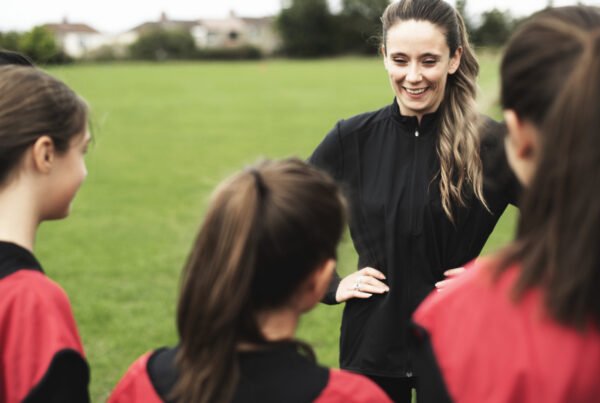Abstract
The purpose of this study was to explore how the perceived masculinity or femininity of a female coach affected how others interpreted the effectiveness of their coaching. Sport coaching tends to be associated more with society’s idea of masculine behaviours such as authority, dominance and competitiveness. Femininity can be associated with positive coaching traits such as improved relationship quality and empathy. Yet women who demonstrate masculinity more in line with traditional coaching tend to be perceived as less likeable, and therefore less effective. As a result, stereotypes surrounding masculinity and femininity may be influential on how a coach is perceived and assessed.
Methodology
The study included 73 participants (44 males, 23 females) recruited from a range of team and individual sports. Participants had been involved in their sport for an average of 13 years and covered a range of performance levels from recreational to international. Each participant was shown four videos in a random order, each depicting a similar coaching session but with either male or female athletes and a masculinised or feminised coach. Participants were asked to rate the coach on perceived relationship-quality, including the three subscales closeness, commitment, complementarity; perceived coaching competence, including the four subscales motivation, game strategy, technique, and character building; and perceived empathy.
Key Findings
For perceived relationship-quality, the results only showed a significant effect on the closeness subscale, with the masculinised coach being rated higher. This is contrary to the hypothesis that relationship-quality is positively associated with femininity. There was no main effect observed for perceived empathy. For perceived coaching competence, the masculinised coach was rated higher for three of the four subscales (motivation, game strategy and character building). There was also a trend for the feminised coach to score higher in relationship quality and competency when working with male athletes compared to female athletes, and the masculinised coach to score higher with females.
Interpretation
This study demonstrates how gender bias can influence how others understand coach interactions, even when the behaviours of that coach are similar across situations. This could potentially affect perceptions of coach competency, effectiveness and career progression. The findings are also interesting because some differ from previous assumptions about gender, such as the association between perceived relationship-quality and femininity. This suggests that previous results examining male/female coaches are not directly equitable to the masculinisation/feminisation of a single female coach. This highlights how the sex of a coach, how they are gendered, the sex of their athletes and the gender stereotypes of their sport are complexly related and interdependent. For application to community sport in Scotland, it is important for coach educators and managers to be aware of any potential gender biases when assessing coaching competency.




